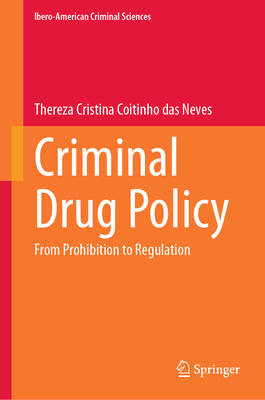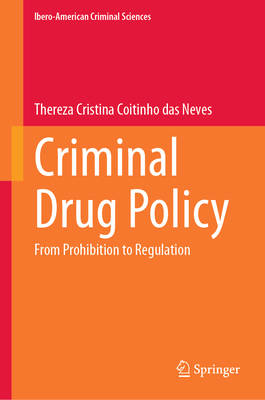
- Retrait en 2 heures
- Assortiment impressionnant
- Paiement sécurisé
- Toujours un magasin près de chez vous
- Retrait gratuit dans votre magasin Club
- 7.000.0000 titres dans notre catalogue
- Payer en toute sécurité
- Toujours un magasin près de chez vous
Description
This book presents a critical examination of the global drug prohibition system, focusing on its historical development, societal impact, and inherent contradictions. Drawing from a wide array of interdisciplinary perspectives-spanning law, politics, history, sociology, and economics-the author explores how the criminalization of certain substances has not only failed to curb illicit drug use but also created harmful collateral consequences, particularly in Latin America.
The book critiques the so-called "War on Drugs," initiated in the 1970s, and highlights its detrimental effects on marginalized communities, particularly in Brazil, where militarized police forces control poverty-stricken areas. Through a compelling analysis of the legal and geopolitical factors behind drug prohibition, it highlights the illegitimacy and social costs of punitive drug policies. This book emphasizes the urgent need for a paradigm shift towards drug regulation, arguing that the current punitive approach exacerbates human rights violations and perpetuates systemic violence.
The work further offers practical solutions for reform, proposing alternative models of drug control that prioritize harm reduction and public health. With a focus on the necessity of global cooperation and the ethical imperative to protect human dignity, the book challenges readers to rethink entrenched ideologies surrounding drug use and criminal justice.
Spécifications
Parties prenantes
- Auteur(s) :
- Editeur:
Contenu
- Nombre de pages :
- 289
- Langue:
- Anglais
- Collection :
Caractéristiques
- EAN:
- 9783032147011
- Date de parution :
- 28-02-26
- Format:
- Livre relié
- Format numérique:
- Genaaid
- Dimensions :
- 155 mm x 235 mm

Seulement chez Librairie Club
Les avis
Nous publions uniquement les avis qui respectent les conditions requises. Consultez nos conditions pour les avis.





